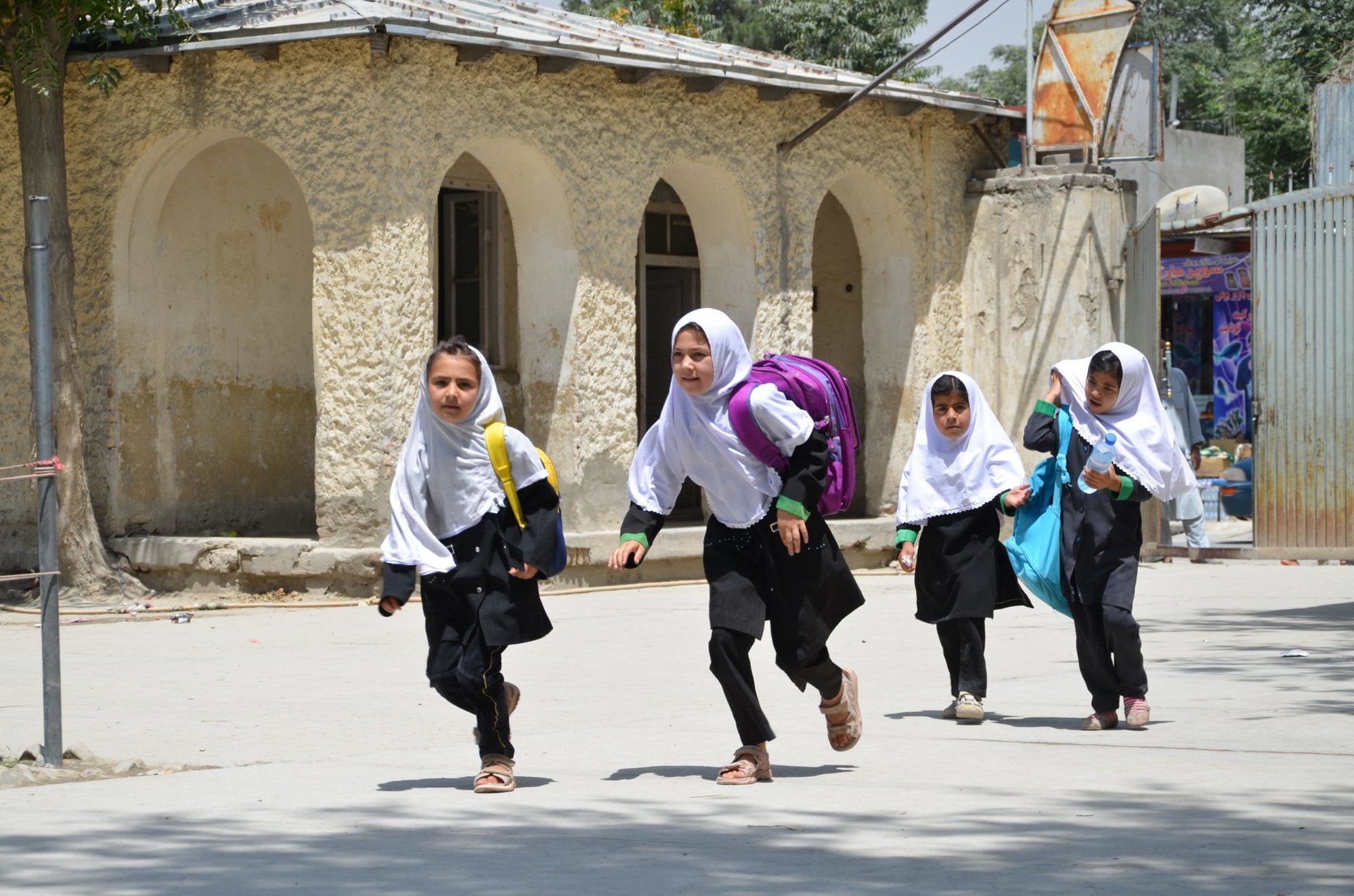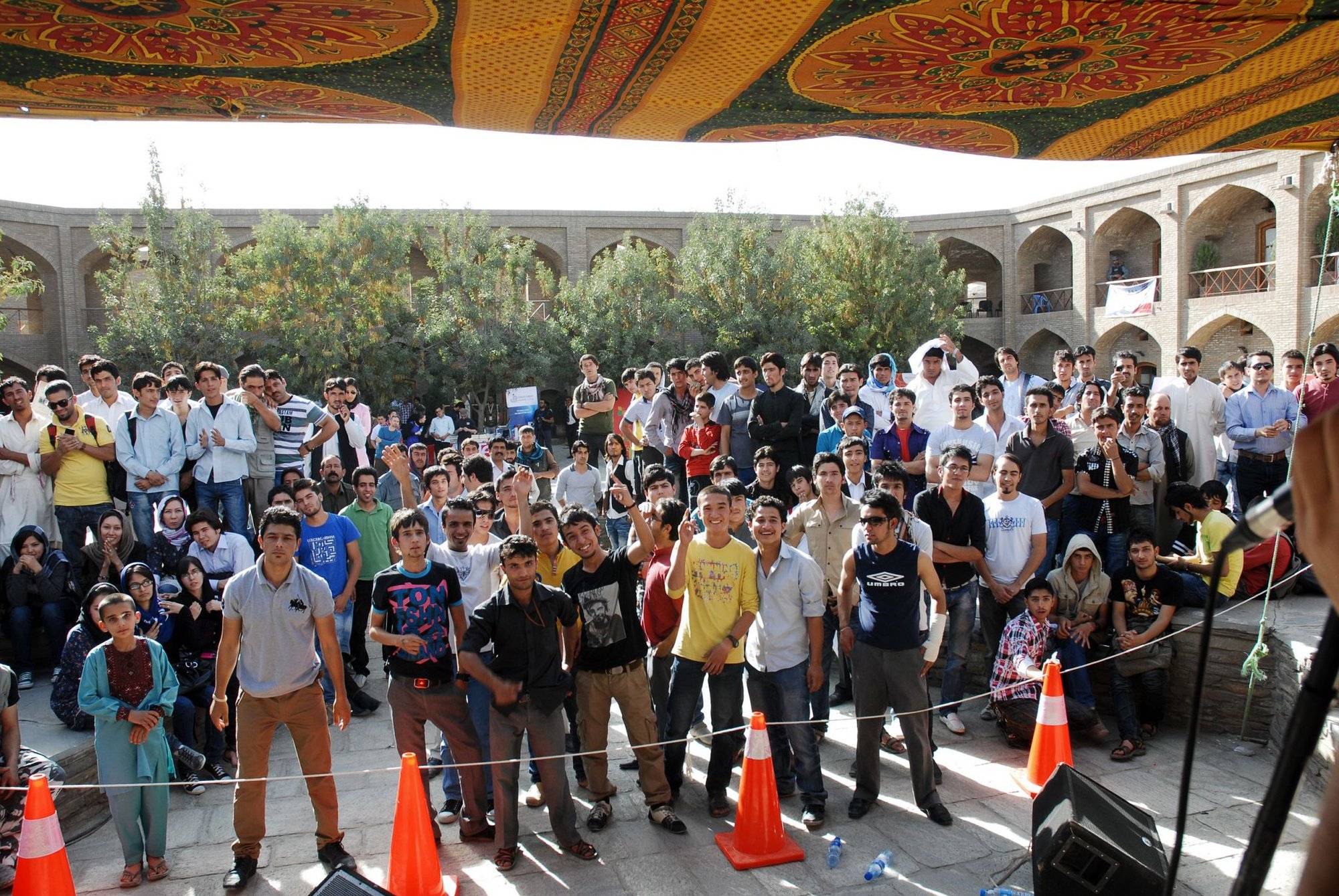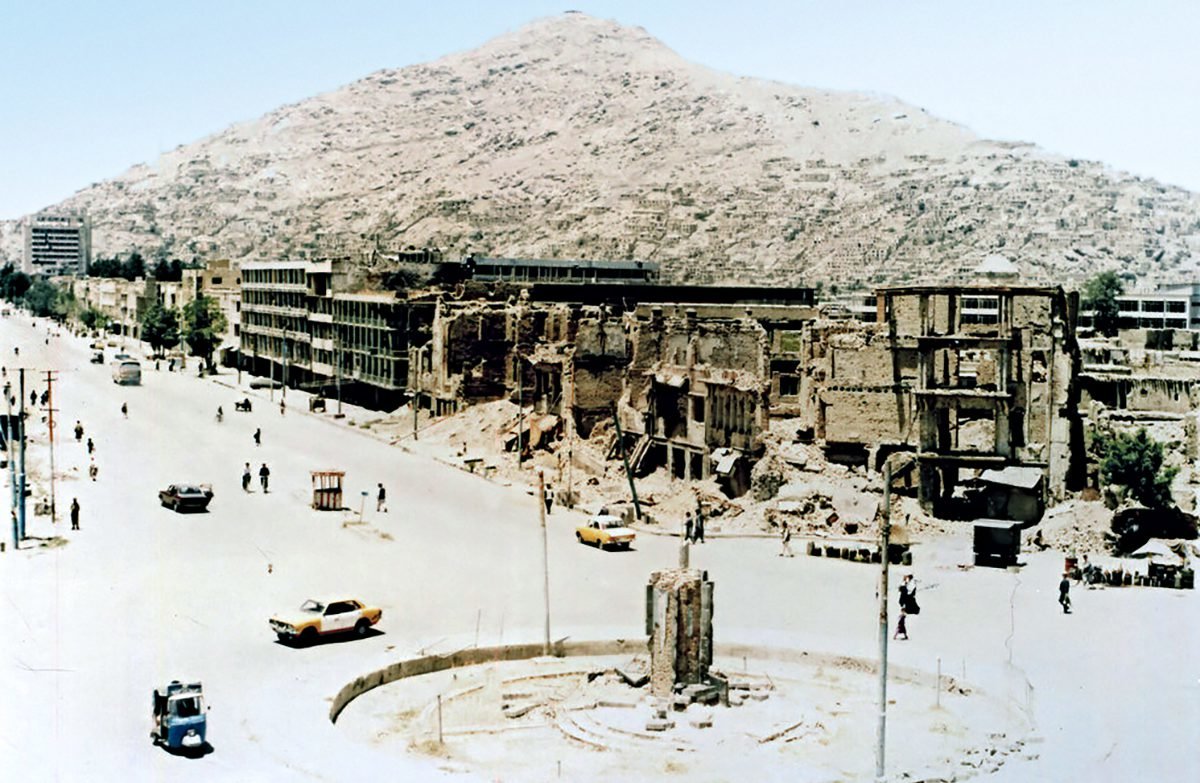
Afghan students run to class as teachers at the girls school in Kabul, Afghanistan, receive English language study classes from US forces and local volunteers on June 29, 2011. Under Taliban rule in the 1990s, girls could go to school only until the age of 8. Photo courtesy of DVIDS.
Early Sunday morning, Aug. 15, an anonymous 24-year-old Afghan woman wrote in The Guardian about the Taliban’s siege on the city of Kabul. The Afghan police had evacuated the women’s dormitory at Kabul’s American University due to Taliban threats to beat women not wearing burqas. At her home, the author said she hid her student ID and stashed away her diplomas and certificates — all things she had proudly earned.
“I felt like I can no longer laugh out loud, I can no longer listen to my favourite songs, I can no longer meet my friends in our favourite cafe, I can no longer wear my favourite yellow dress or pink lipstick,” the Afghan woman wrote. “And I can no longer go to my job or finish the university degree that I worked for years to achieve.”
This potential bellwether for things to come recalled the Taliban’s brutal reign during the 1990s.
“I did not expect that we would be deprived of all our basic rights again and travel back to 20 years ago,” the woman wrote. “That after 20 years of fighting for our rights and freedom, we should be hunting for burqas and hiding our identity.”
The Taliban, which translates to “students” in the Pashto language, emerged during the Afghan Civil War, which was fought between different factions of the Afghan mujahedeen during the 1990s. The predominantly Pashtun movement founded in northern Pakistan’s madrassas, or religious schools, crossed the border into the Afghan city of Kandahar in 1994. Elements of the Afghan mujahedeen and religious fanatics filled their ranks, and after two years of conflict, the Taliban established an Islamic emirate.
“The Taliban Islamic militia have come and conquered with stunning speed; and last night they moved north, claiming to have captured the Parwan provincial capital of Charikar,” British journalist David Loyn wrote on Sept. 29, 1996. “Even the Taliban forces have been surprised by the rapid pace of the retreat.”
The Taliban targeted former Afghan president Mohammed Najibullah at a protected United Nations compound. A Turkish UN official refused to allow the Taliban access until he was overpowered.
“Najibullah was shot in the side of the head and at first light his blood-soaked body, still in pyjamas, was hung from a traffic control point near the presidential palace,” wrote Loyn, describing the Taliban’s scare tactics. “His brother, who had been held for five hours, was hanged alongside him.”
The medieval brutality of the Taliban shocked some of the group’s backers, including from Pakistan.

“It’s the power of the Talibans’ ideas and the stability they have brought to war-torn Afghanistan that makes them so frightening, not their military prowess,” history and sociology professor Franz Schurman wrote in the Sacramento Bee in 1997.
“Even scarier is that they did it with few casualties among their troops and even fewer among civilians,” Schurman wrote.
Once in power, the Taliban ruled through a brutal interpretation of Islamic law and quickly established one of the worst human rights records in the world. Under Taliban rule, makeup and nail polish were prohibited. White socks were also outlawed and so were shoes that made noise, such as high heels, because women were expected to “walk silently.”
Women caught on the street with a man to whom they were not related were publicly flogged with 100 lashes in a stadium full of people. If married, the punishment was death by stoning. Taliban justice included swift trials and kangaroo courts, public amputations, and executions. Beyond those punishments, the Taliban moved quickly to close women’s universities and force nearly all women to quit their jobs.
“It restricted access to medical care for women, brutally enforced a restrictive dress code, and limited the ability of women to move about the city,” the US State Department said on Nov. 17, 2001. “The Taliban perpetrated egregious acts of violence against women, including rape, abduction, and forced marriage.”
Inadequate medical care for women resulted in one of the highest mortality rates in the world for Afghan children. According to the US State Department, records from the United Nations International Children’s Emergency Fund (UNICEF) indicated that 165 out of every 1,000 Afghan babies died before their first birthday.
During the Afghan Civil War, some 50,000 women lost husbands and male relatives. Thus, unable to land a job under Taliban rule, those women had no way to earn an income and thereby provide for their families. The Taliban prohibited children from having dolls, stuffed animals, and toys. Girls over the age of 8 were not allowed to go to school.

“When there is security in Kabul, girls’ schools can open,” Galaluddin Sheenwari, more commonly spelled Jalaluddin Shinwari, the Taliban government’s deputy minister of religious instruction, told The Associated Press in 1996.
Prior to the Taliban’s rise to power, Afghan women enjoyed rights comparable to those of women in many Western nations. Afghan women received the right to vote in the 1920s; the country’s constitution provided equality for women in the 1960s. In 1997, women made up more than 15% of Afghanistan’s highest legislative body.
“It is estimated that by the early 1990s, 70% of schoolteachers, 50% of government workers and university students, and 40% of doctors in Kabul were women,” the US State Department reported. “These professional women provide a pool of talent and expertise that will be needed in the reconstruction of post-Taliban Afghanistan.”
When the 2001 US invasion liberated the people of Afghanistan from the Taliban, basic freedoms were restored. Today, after reconquering the country, the Taliban have publicly proclaimed that they will not reimpose their draconian laws from the 1990s. The veracity of that pledge, however, is far from certain.
Read Next: The Taliban Are Not the Same as Mujahedeen — Here’s Why

Matt Fratus is a history staff writer for Coffee or Die. He prides himself on uncovering the most fascinating tales of history by sharing them through any means of engaging storytelling. He writes for his micro-blog @LateNightHistory on Instagram, where he shares the story behind the image. He is also the host of the Late Night History podcast. When not writing about history, Matt enjoys volunteering for One More Wave and rooting for Boston sports teams.
BRCC and Bad Moon Print Press team up for an exclusive, limited-edition T-shirt design!
BRCC partners with Team Room Design for an exclusive T-shirt release!
Thirty Seconds Out has partnered with BRCC for an exclusive shirt design invoking the God of Winter.
Lucas O'Hara of Grizzly Forge has teamed up with BRCC for a badass, exclusive Shirt Club T-shirt design featuring his most popular knife and tiomahawk.
Coffee or Die sits down with one of the graphic designers behind Black Rifle Coffee's signature look and vibe.
Biden will award the Medal of Honor to a Vietnam War Army helicopter pilot who risked his life to save a reconnaissance team from almost certain death.
Ever wonder how much Jack Mandaville would f*ck sh*t up if he went back in time? The American Revolution didn't even see him coming.
A nearly 200-year-old West Point time capsule that at first appeared to yield little more than dust contains hidden treasure, the US Military Academy said.












